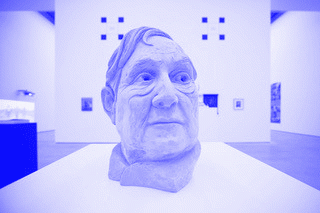Topic
Sponsoring the Arts in Post-Socialism
The research provides a critical analysis of the motives driving some transnationally active funding bodies to ensure the continued production and the global distribution of contemporary art from East-Central Europe.

Attention Shift for »Art in the East«: Transformations of Art Funding and Art Historical Research Since the Late 1980sThe end of state socialism spelled the collapse of centralised state subsidy for artistic production in the countries of East-Central Europe; at the same time, the ‘new Europe’ as a cultural region took centre stage internationally. This constellation opened up opportunities that were consecutively seized by some major international sponsors. The analysis centers around the causes and fluctuations of this attention economy during the ‘long history’ of the post-socialist transformation.
The focus is set on the Soros Foundation and the Austrian ERSTE Foundation as well as on the regional networks they established. Both foundations assumed a quasi-cultural-diplomatic mission, making considerable efforts to brand Central and Southeast-European culture on an international stage. The study explores the motivations and results of this funding activity. The conceptual framework of ideologically motivated patronage is supplemented with aspects of soft power, social engineering and philanthrocapitalism. The goal is to foreground the propaganda role of art and the forms of cultural foreign policy as practiced by non-state actors in the post-socialist era.
The study is carried out as part of the networked project »Multiple Transformationen: Gesellschaftliche Erfahrung und kultureller Wandel in Ostdeutschland und Ostmitteleuropa vor und nach 1989« [Multiple Transformations: Social Experience and Cultural Change in East Germany and East-Central Europe before and after 1989], funded by the Sächsisches Staatsministerium für Wissenschaft, Kultur und Tourismus (SMWK).

